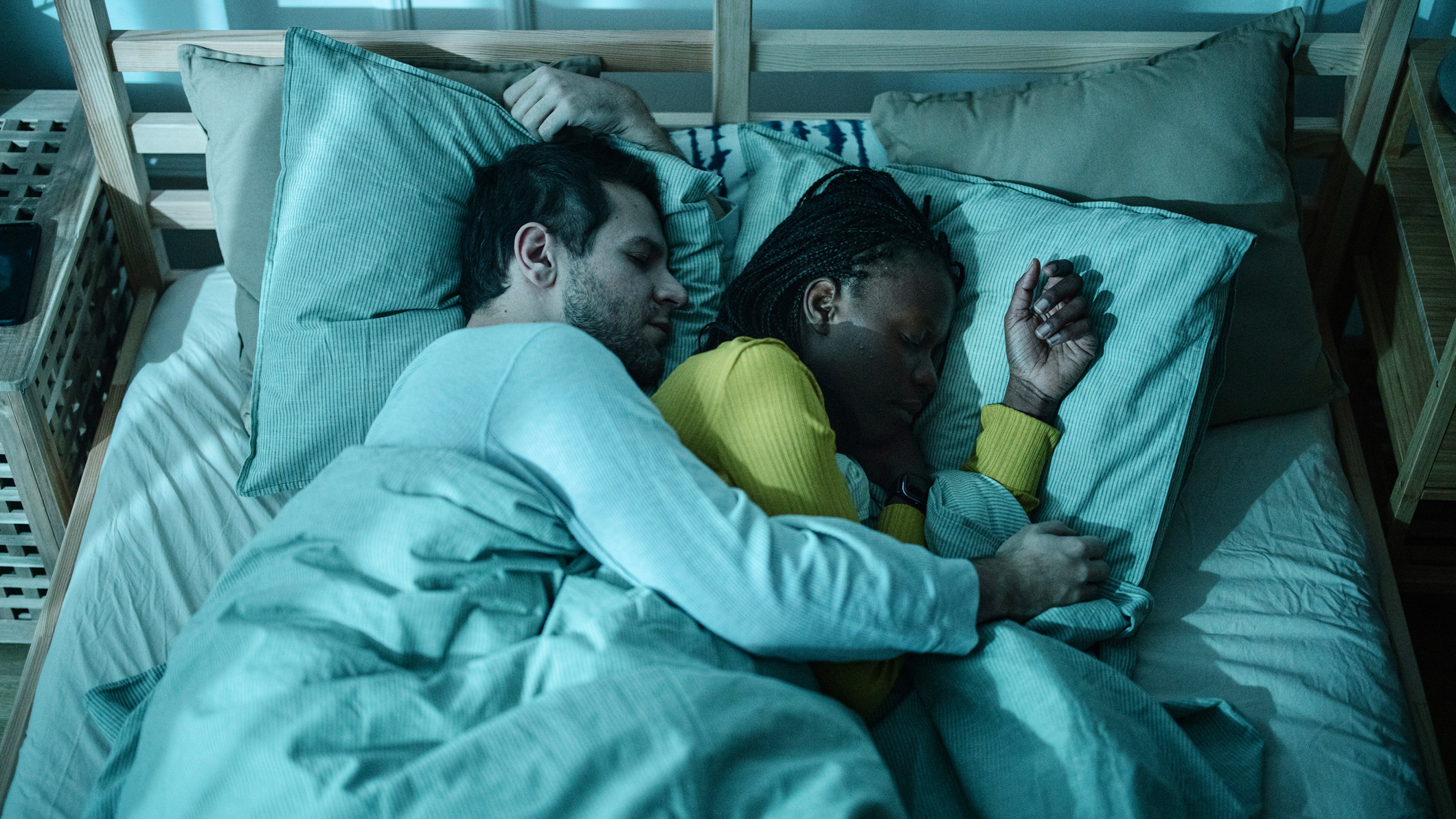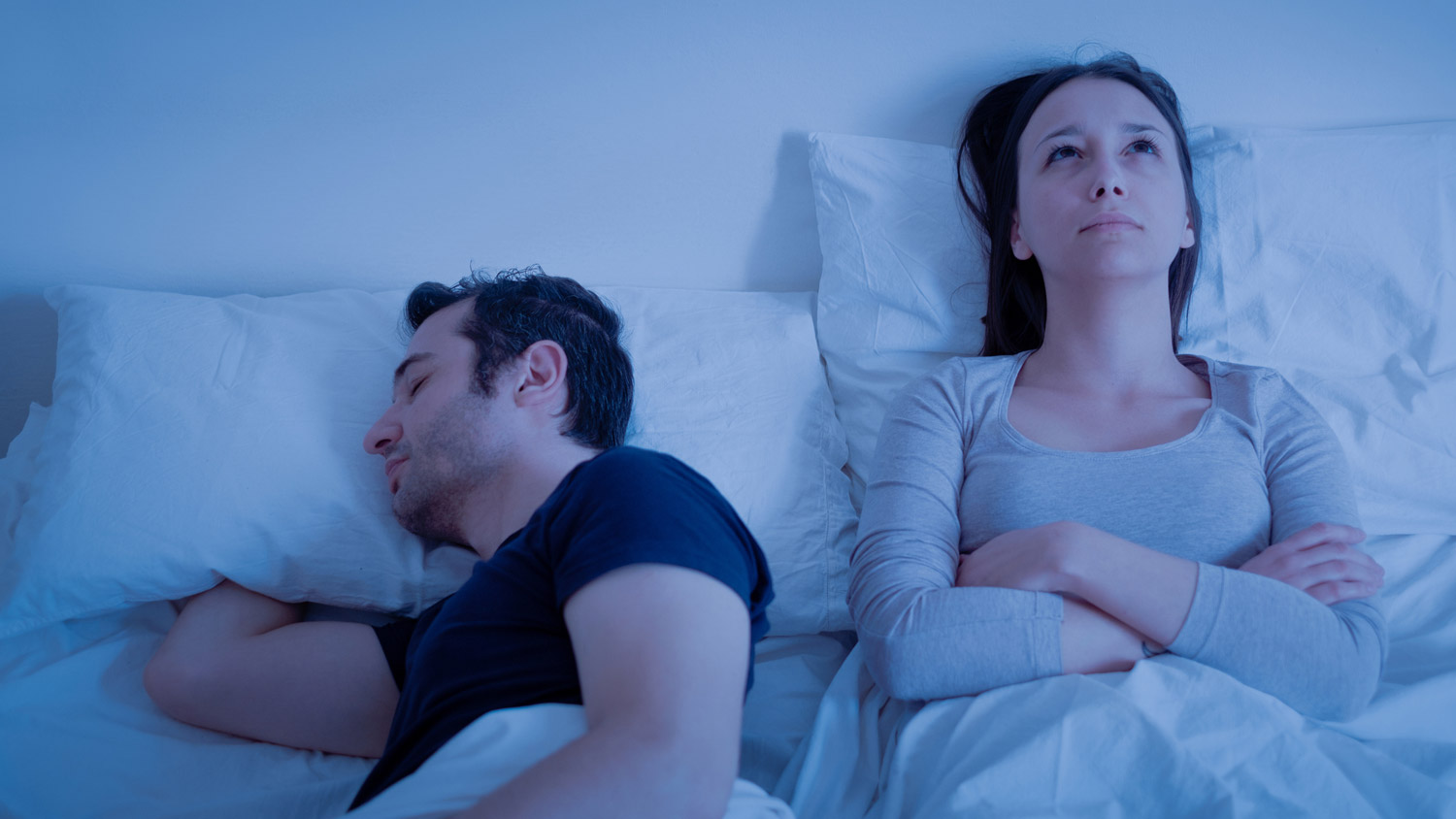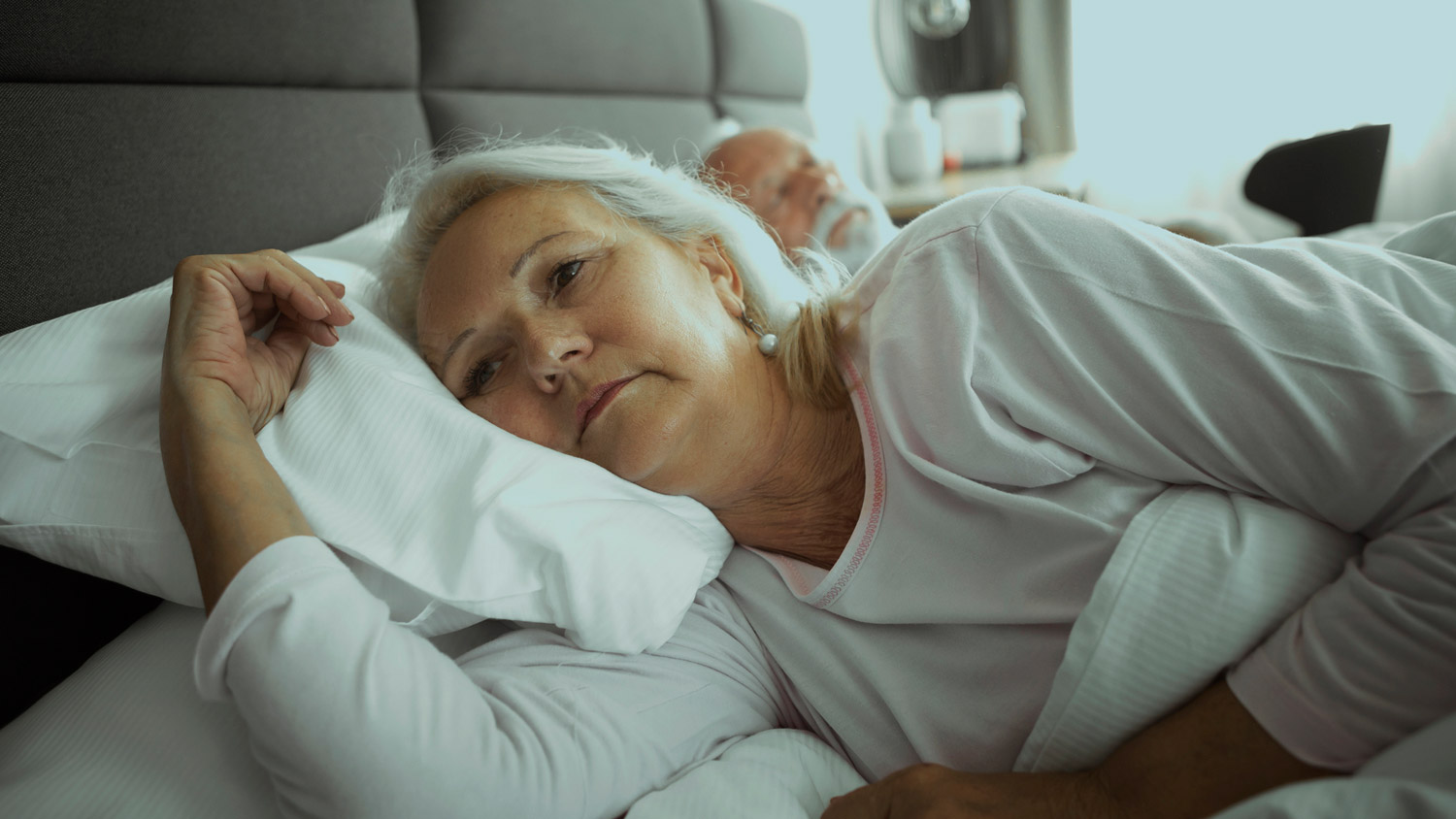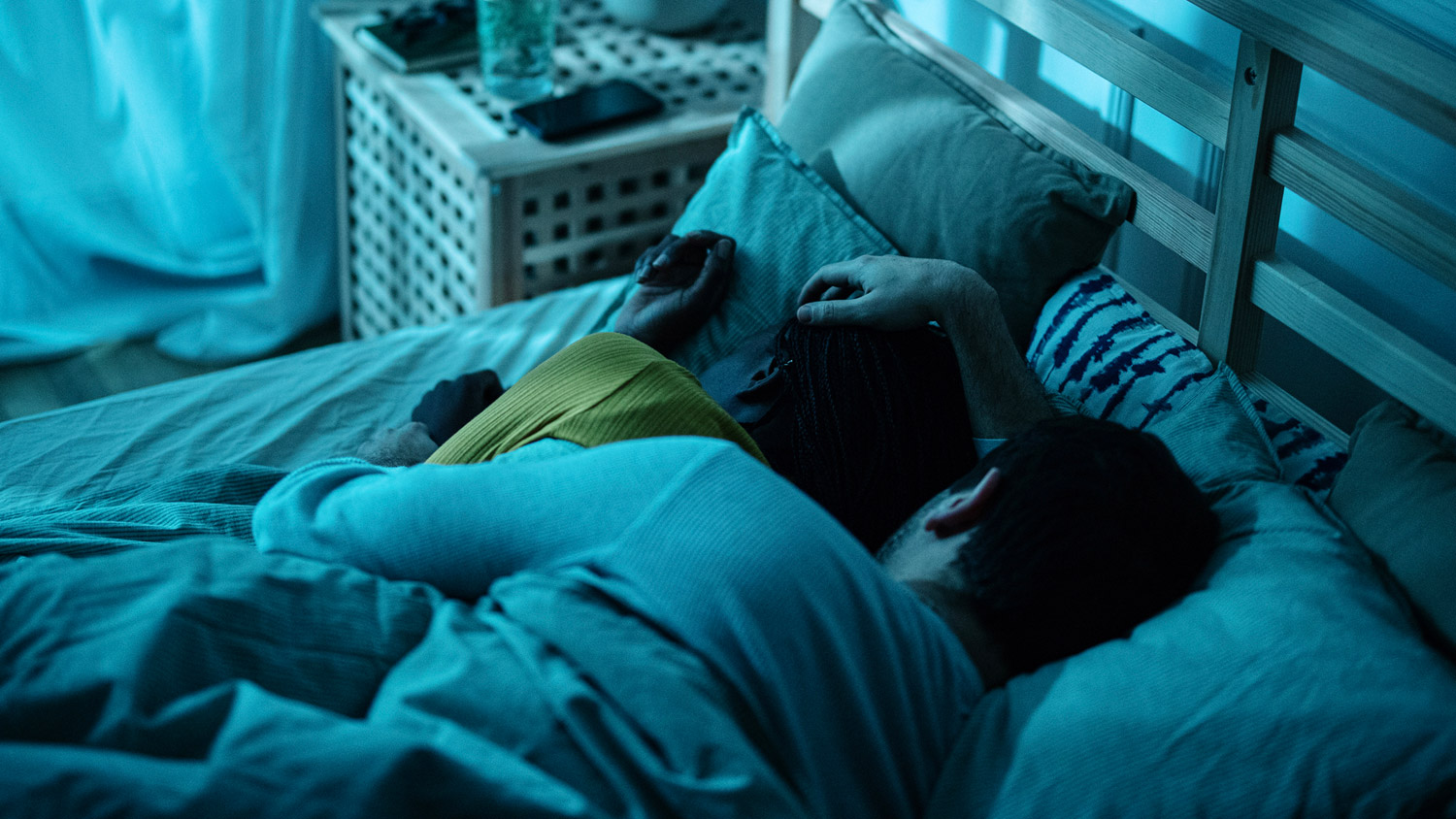
The quantity and quality of your nightly shuteye hinges upon countless factors. Your caffeine and alcohol intake, your level of physical activity and when you work out, and the consistency of your wake and sleep times are only a few of the many contributors influencing how well and how much you sleep, and that's before you even consider whether you have the best mattress for your needs. But have you ever wondered if certain predispositions out of your control contribute to your sleep issues?
For instance, how much do sex and gender play a role in sleep quantity, quality, and even clinical sleep disorders? Are there unavoidable differences in sleep between men and women? These questions, answered ahead.
Is sleep different between the sexes?
By and large, yes: men and women show differences amongst several parameters of sleep, in part due to major life stages marked by hormonal fluctuations. As behavioral sleep specialist Carleara Weiss explains, “Gender-based differences in sleep become more evident after puberty because menstrual cycles, pregnancy, and menopause may alter sleep architecture.”
But that’s not all. Gender-based social roles and expectations can also lead some women to experience poorer markers of sleep. “Women are more likely to take roles as caregivers and [perform] household activities, increasing anxiety levels and negatively impacting their sleep,” Dr. Weiss continues.
How is sleep different between men and women?
According to Dr. Weiss, research shows the following broad trends in sleep parameters when contrasting male and female populations:
- Women are more likely to be diagnosed with insomnia
- Men are more likely to be diagnosed with obstructive sleep apnea
- Women experience poorer sleep duration and quality
- Men spend more time in light sleep stages
As far as major hormonal shifts go, women may experience adverse changes in their sleep during the following life stages. Here’s the what and why:
Menstrual cycles
According to Dr. Weiss, an increase in progesterone during the ovulatory and luteal phases boosts the likelihood of sleep disturbances (including insomnia), in large part due to an increase in core body temperature.
Pregnancy
“Anatomical and physiological changes affect sleep,” shares Dr. Weiss. Pregnancy is likely to drive many of these changes, which she says may include increased core body temperature, back pain, gastroesophageal reflux, morning sickness, and overall discomfort. Moreover, a 2016 review published in the Pakistan Journal of Medical Sciences notes that a host of sleep-related issues—including insomnia, restless legs syndrome, sleep apnea, and nocturia (frequent nighttime urination)—are common during pregnancy.
Menopause
“Hot flashes and mood swings are typical menopausal symptoms caused by hormonal changes that damage sleep,” Dr. Weiss explains. Increased incidences of obstructive sleep apnea and insomnia are also associated with this life stage, she adds.

Next, women are more susceptible to performing unpaid labor—such as family caregiving and housekeeping—that can tax their daytime energy levels, exacerbate stress, and contribute to sleep issues.
“The invisible work performed by women affects their mental health and ultimately increases the risk of insomnia, anxiety, and poor sleep quality,” Dr. Weiss shares. For example, a 2016 review published in Current Sleep Medicine Reports shows that up to 76 per cent of caregivers reported poor sleep quality—marked by short sleep duration and frequent nocturnal awakenings—with women reporting more disturbances than their male counterparts.
Despite the time constraints and greater obligations in these cases, a 2013 article published in American Sociological Review notes that women tend to log more time sleeping than men do. Research estimates this extra shuteye clocks in at around 11 to 20 minutes, which may help support brain health and facilitate recovery in women, according to Piedmont Healthcare.
Will sex and gender always dictate how well you sleep?
It bears repeating that there are many influential factors that impact how well or how poorly you sleep at night—with your diet, physical activity, stress levels, and overall health status chief among them.
While research shows a few key differences amongst sleep quantity and quality for men versus women, such findings and trends aren’t necessarily set in stone. Age is yet another potential contributor to sleep parameters—even within the sexes.
A 2021 study published in the International Journal of Environmental Research and Public Health discovered the following trends:
- Women under 40 logged higher sleep times and sleep efficiency than women over 40 and men under 40. They also experienced the best sleep quality across all age- and sex-differentiated groups.
- Men under 40 logged significantly lower sleep times and nocturnal awakenings, plus poorer sleep efficiency, than men over 40.
- Elderly men and elderly women didn’t demonstrate notable differences in sleep, “suggesting the impact of sex hormones on sleep.”
Moreover, sleep science is constantly evolving and uncovering new findings. This is a good thing, especially since gender-specific research is relatively new in the field.
“There is historically limited evidence on gender-based sleep disturbances investigating menstrual health, pregnancy, postpartum, lactation, and menopause,” Dr. Weiss shares. “Men predominantly led science, and these topics needed to be better explored.” Over the past decade or so, research has been more inclusive of women as researchers and study participants alike.

“For example, studies on insomnia and obstructive sleep apnea include women and explore changes in the menstrual cycle,” she continues. (Obstructive sleep apnea, for instance, has long been regarded as male-specific sleep disorder. However, a 2013 study published in the European Respiratory Journal found that it affects half of adult women ages 20 to 70.) “Scientists are investigating hormonal, behavioral, and brain changes during postpartum and menopause,” Dr. Weiss adds.
In addition, sleep research on transgender and nonbinary (TGNB) individuals is in its infancy. Yet a 2023 study published in the Journal of Clinical Sleep Medicine found that TGNB youth (ages 12 to 25) are 5.4 times more likely to experience insomnia and 3 times more likely to have sleep apnea or another sleep disorder compared to cisgender youth. Per a 2020 study published in the journal Transgender Health, mental health issues, gender identity issues, and concerns over gender-affirming surgery and/or hormonal interventions also contributed to sleep challenges across the 40 TGNB adults interviewed.
The bottom line

In sum, hormonal fluctuations—and as a result, age—are likely to be amongst the major drivers of sex-based differences in sleep. Socially entrenched gender roles (such as caregiving and domestic labor) more commonly and heavily fall on the shoulders of women, which can also exacerbate daytime fatigue, stress, and sleep issues.
All things considered, most adults require 7 to 9 hours of sleep per night. These needs range may vary due to age, health status, and sleep disorders. If you’re unable to log this amount of sleep—without frequent awakenings and disruptions to your sleep cycles—consult your physician.
No matter if your sleep issues are on account of your sex, gender, or any other factor, everyone needs adequate shuteye to support good health from one night to the next, year after year.







